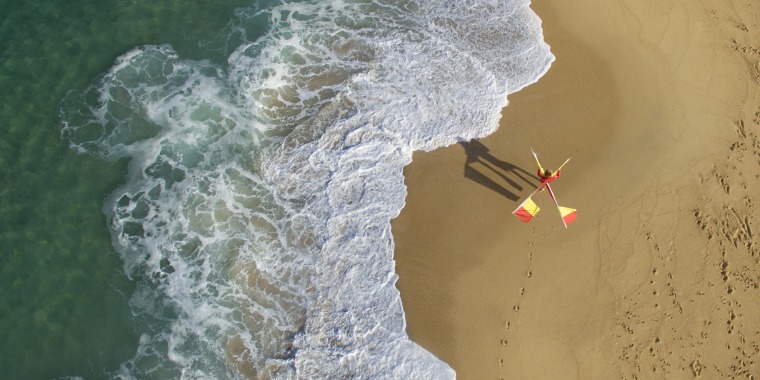In the wake of an apparent shark attack that killed a woman near Bailey Island in Maine this week, some beachgoers might be a little leery about going for a dip in the ocean.
Although shark attack rates were down this spring, likely as a result of pandemic-related beach closures, there have been a number of attacks on the East Coast in recent years.
Last year, Austin Reed, 19, survived an attack at North Carolina’s Ocean Isle Beach, an 8-year-old boy suffered puncture wounds to his leg in an attack on Bald Head Island, and 17-year-old Paige Winter lost a leg after surviving an attack at a state park beach when her dad punched a shark.
Shark attacks are rare, but it remains important to be aware of safety precautions.
NBC News' Kerry Sanders, who has been reporting on shark attacks for TODAY over the years, spoke with experts to get tips on how people can protect themselves against sharks and other dangers while at the beach this summer.
Shark attacks are rare, but use these tips to stay safe
Incidents of shark attacks declined last year. There were 64 confirmed cases of unprovoked attacks worldwide in 2019, which is lower than the recent five-year average of 82 incidents, according to the International Shark Attack File.
When it comes to staying safe in the water, Kristen Ojito, a lifeguard in Dania Beach, Florida, stressed the importance of knowing first aid in case of an attack.
"And if there's heavy bleeding, if you can improvise a tourniquet it would be helpful to slow the bleeding,'' she told Sanders.
Experts also offered the following tips for swimmers:
- Avoid the surf in early morning and evening when sharks typically feed.
- Always swim in groups.
- Steer clear of waters used by sport or commercial fishermen, who may be chumming the water.
Ojito also had some tips for dealing with other marine life like jellyfish and Portuguese man-of-wars that can turn a trip to the beach into a painful day.
- Fight your curiosity and don't touch it.
- If you get stung, rinse the area with saltwater, not freshwater.
- Use a stick or a leaf to scrape the jellyfish off so that you don't get stung anywhere else.
Another threat while out in the ocean can be dangerous rip currents that can exhaust swimmers and pull them far from shore.
U.S. Coast Guard Commanding Officer Lt. Derek Wallin and his crew gave Sanders an important piece of advice for swimmers caught in a rip current.
"The most important thing is to stay calm,'' Wallin said. "You want to try to conserve your energy. You want to be able to keep your wits about you and you want to make yourself as big a target as possible."
